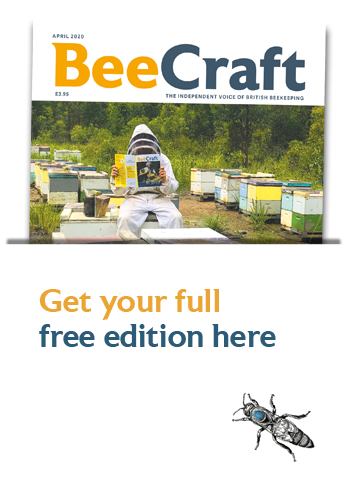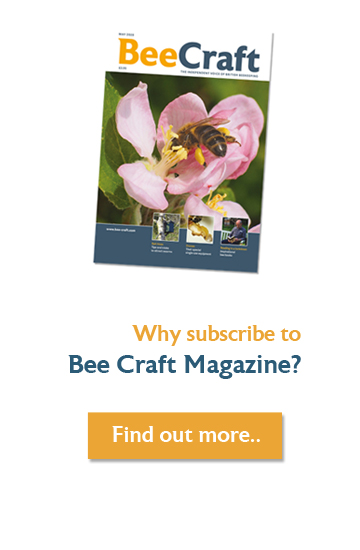By Adam Leitch, Master Beekeeper, NDB
Autumn is a time that many associations host honey shows, with opportunities to compete for various prizes and cups. Such shows are sometimes dismissed as being irrelevant to practical beekeeping, but in my experience they provide a lot of opportunities for new beekeepers to learn about harvesting, storing and processing honey, techniques and knowledge which directly relate to the saleability of any excess honey crop you may have.

Photo: Claire Waring
Classes for light, medium and dark honey provide opportunities to learn about which local crops may have provided the nectar. Jar cleanliness is not something just for those seeking to win honey show prizes, it is an essential part of the hygiene requirements which consumers should expect for honey offered for sale.
Perfecting your honey for a honey show, including ensuring it is crystal clear, is a true measure of your abilities. Poorly presented honey does not sell well and shops may ask you to replace jars which have granulated. I tend to follow the heating advice in Ted Hooper’s book Guide to Bees and Honey when it comes to temperatures and durations.
If you are heating large buckets of honey which have granulated, you need a warming cabinet. These can be easily made with a suitable heat source in an old fridge or wooden cabinet, although you can improve them by including a thermostat. There are plans on the Internet on how to build honey warming cabinets and Bee Craft sells a useful booklet How to make a Warming Cabinet for Two Honey Buckets (https://www.bee-craft.com/bee-craft-shop/product-category/beekeeping-booklets/)
In my first year of beekeeping, I didn’t have a warming cabinet and found (by accident) that leaving jars of honey in my conservatory on a sunny day provided the same effect!
Other classes
As well as classes for honey, most shows have classes for wax, cosmetics and honey cookery,so even if you don’t want to enter classes for honey in the jar, there are plenty of other categories to try.
Like preparing honey, showing wax can involve lengthy preparations. You need to use wax (from cappings) and filter it to clean it. However, once you master this preparation, you can be confident that your candles will burn cleanly with a lovely aroma.
Honey shows also offer a great opportunity to interact with the general public. You may still feel like a beginner, but to someone who has dropped into a honey show, you will already be an expert. Spending time talking about bees and beekeeping is a lovely way to pass on some of your knowledge.




